When I Knew I Was Needy
I still remember the weight of him, pudgy legs sticking out of red cotton overalls, little hands relaxed as he slept in my lap. It was past nap time, and I had been trying so hard to get 9-month-old Stephen on a schedule. I knew he wouldn’t nap as long in my lap as he would at home, and this would probably mess up the schedule for the rest of the day.
As I sat there during the interminable wait, I reflected on the whirlwind of the past few months. Christian had changed jobs while I was pregnant and had begun working at our church. It was a full-time job, and the church was also paying for him to go to seminary. He started in the fall of 2010 when Stephen was almost seven months old. I had stopped working the week before Stephen was born, and we were plodding along with a very meager budget.
Soon after Christian started seminary, though, Stephen began to grow increasingly discontent. The pediatrician couldn’t find anything wrong with him. His best guess was that maybe he had developed reflux, which was why he was so fussy when he was done eating. Not knowing any better, and not having any other ideas, I filled the prescription and started giving him acid reflux medication several times a day. It didn’t help.
Then I missed my period. A friend who had gotten pregnant around the same time as me had read all the books on natural childbirth and attachment parenting and told me that it was almost impossible to get pregnant if you were breastfeeding. Not knowing any better, and not even knowing where to go to dispute this claim, I wasn’t doing anything in terms of birth control. So I knew I could be pregnant, but I also didn’t really think I could be. I took a pregnancy test just in case.
Positive.
Suddenly all of Stephen’s fussiness made sense. My milk supply had been waning as my hormones prepared my body once again for pregnancy. Stephen was in the 99th percentile for height and weight, and my body couldn’t handle keeping me alive, nourishing the baby in my womb, and feeding Stephen as well. He was fussy because he was hungry.
I immediately went to buy formula and from the first day of bottles he was drinking 8 ounces, 4 times a day, the maximum amount recommended by our pediatrician, in addition to solid food. On one hand, I was relieved that he was no longer fussy and that my body could have a little bit of a break. Morning sickness had set in and breastfeeding was the last thing I felt like doing. On the other hand, formula was expensive.
I don’t even remember who told me about WIC, a federal program that provides supplemental benefits to pregnant women and their children until age 5. I found out that WIC would cover the cost of some formula, and that we were eligible based on our income and family size.
In the back of my mind, I knew that this was some form of government assistance. It didn’t seem to have the same connotations as food stamps, which I thought were only for people who had not managed their money well. And I knew that with food stamps, you could buy anything you wanted, and the impression I had gotten was that people who used food stamps were just buying soda and chips. WIC was different—you received vouchers, similar to food stamps, but they were for very specific items depending on whether you were pregnant or nursing as well as the age of your children. I could get vouchers for formula, baby food, produce, yogurt, milk, peanut butter, bread, beans, and a few other things. Intended to be supplemental, the vouchers may or may not be enough to cover all the formula someone would need, but it would pay for most of it.
I don’t know if it still works the same way now, as this was way back in 2010, but at the time you had to go in person to the WIC office every few months to prove that you still qualified. Sometimes you also had to go to special nutrition or parenting classes, depending on the age of your baby.
That’s where I was the day Stephen fell asleep in my lap. He was going to have a growth check so that I could get the first set of vouchers to get formula for free.
Hours before, I had walked into the basement level of the monochromatic concrete building downtown. The uncomfortable plastic chairs were set up around planters full of dirt, which seemed unwise given the number of toddlers running around. Everyone had a baby or young child with them, often multiple children of varying ages. There were a few couples, but it was mostly mothers and their children. I heard several languages other than English being spoken. I also found myself as one of the only white people in the entire establishment, including the employees behind the counter.
I felt like a spotlight was on me. I worried they were judging me for being there. They were probably all desperate, but I didn’t want them to see me as desperate. Of course, only people with a low income could qualify, so we were all in the same boat, but I felt like I wasn’t supposed to be there.
I had graduated from high school at the top of my class and gone to college on a full scholarship plus a stipend. I’d graduated from college with excellent grades and no student loans. I had gotten married a year after graduation and had spent a year working in the office of the Governor of South Carolina after completing a prestigious internship at a large newspaper.
Now I was sitting in a plastic chair next to fake plants in real dirt, in a poorly lit basement, waiting for them to call my number so that the government could help me pay for formula for my baby, who I could no longer feed with my own body because I was pregnant again. Christian was working as hard as he could and going to seminary on top of work so that he could get his masters’ degree and hopefully make more money in an official ministry capacity.1
In retrospect, I was scanning the basement crowd trying to find anyone else who was the same as who I thought I was. Someone who, in an alternate reality, would have had enough money to pay for formula. Someone whose husband was working—not lazy or bumming off of other people. Someone who was smart and intelligent and capable.
I didn’t feel capable. I felt tired. Morning sickness had set in and Stephen was so heavy. My arms ached as I tried to stay still and not disturb him. And yet mentally I was still trying to convince myself that this was an aberration. I wasn’t like these other people, who had probably made some really bad decisions that had led them to this place.
In order to use the vouchers, you had to tear them apart at the perforated edges. You could only use certain vouchers in certain months, and within each month there were multiple vouchers with different items listed. There was a pamphlet that showed what items were allowed to be purchased with the vouchers. For example, if you wanted to use the voucher for a gallon of milk, it had to be the cheapest brand of skim or 1% milk that the store sold. For the fruits and vegetables voucher, you could buy frozen, fresh, or canned, but it couldn’t have any added ingredients. I remember the yogurt was the most confusing. There were a few kinds that I knew were OK, but not every store had them. Sometimes I’d get up to the register and discover I had gotten the yogurt wrong. I could use the voucher on other things, but if I didn’t go back and get the right yogurt, I couldn’t come back and get it again another time. It was take it or leave it. The bread was also difficult to find sometimes. The voucher was for a 1 lb (16 oz) loaf of whole wheat bread. Most bread loaves are 20 oz. Only a few stores actually sold bread that would meet the requirements.
Once you had gotten all the items listed on the voucher, you had to go to the register and let the cashier know that you were using WIC vouchers. Working with one voucher at a time, the cashier had to check the items against the voucher, ring the items up, write down the total on the voucher, and then I had to sign the voucher. Then they had to run it through a little machine to get it fully verified. That was just one voucher. Sometimes I had four or five to do in one shopping trip, or even more if I was getting formula. If the cashier knew what they were doing, then this took probably 10 minutes. If the cashier wasn’t as familiar, it took even longer, because they usually had to ask someone else in management to come help them.
You know how you feel when you’re in line and the person in front of you takes longer than you expect? Maybe they are having trouble finding their credit card, or one of their items is damaged and someone has to get a replacement. You might sigh or express some annoyance, even if the situation isn’t their fault.
Checking out with WIC vouchers not only held up the people behind me for a considerable amount of time, but it was obvious what was going on. They might not have known what WIC was; maybe they assumed it was some form of food stamps. I would try as hard as I could not to make eye contact with the people behind me. Maybe they weren’t upset. But maybe they were, and if they were, I was afraid I would see condescension in their eyes at best, and anger at worst.
I also began to pay attention to which cashiers’ lines were the best to go through. My routine was to try to go at night, after Stephen was in bed. The store would be less crowded, so the chance of holding up a line was less. I usually settled on the Publix closest to our house because they had the specific items on the vouchers and I was less likely to accidentally get an item wrong. What became so interesting to me was the response of the cashiers to me, a white woman in her early 20s. The first few times I went, I got in a line with a young white female cashier because I assumed that they would react most favorably to me, someone who looked just like them.
I could not have been more wrong. As time went on, I discovered that of all the cashiers I chose, they tended to be the most disgruntled and annoyed. It happened often enough that it didn’t feel like coincidence.
Sometimes I couldn’t avoid it. I would be in a hurry and the only line open was one with an older white woman. I just had to suck it up and go through and face what felt to me like pure condemnation.
What was most surprising was which cashiers turned out to be the kindest. It was, without fail, young women of color. I wrongly expected them to look down on me or treat me with contempt. Instead, they would ask me about my baby and have a real conversation as they worked through all the vouchers. Even Black women who were older were kind to me. Most men were fine, too. It was the white women, especially the older ones, who were the most unkind.
I’m not going to overanalyze this 15 years later, because the point is not how terrible most of the cashiers were. It was a pain on their part to have to deal with all those vouchers, and even at the time, I didn’t begrudge their annoyance. But I felt so ashamed of the position I was in that I wanted to avoid any extra reminders. This was the first time in my life that I experienced (what was ultimately a very mild form of) discrimination. I had never felt looked down on, especially by people who in a different context I might be sitting next to at church. I began to process the fact that there were people in my state, my county, my city, who experienced much worse than that all the time, and had been for their entire lives, whether due to race or socioeconomic status or both.
In Paul Miller’s book Love Walked Among Us, he says, “Humiliation is the situation where we learn humility.” Humiliation is a strong and painful word, but when I read that sentence, I knew that was the best word to describe what I felt all those years ago.
I was humiliated by having to sit in the WIC office for hours. I was humiliated by the way I was treated by some of the cashiers. I was humiliated by what I assumed the people in line behind me were thinking, whether they said anything or not. I was humiliated by the mere thought of anyone we went to church with finding out that we were receiving government assistance.
I cringe when I think back to the judgment I leveled against the needy families sitting all around me in the WIC office all those years ago. My condemnation of them was ugly and revealed the blindness I had to my own sin. I felt needy to a degree, but in my head it was just a temporary need—we just needed a little help until we didn’t need to buy formula anymore. I didn’t see the depths of my real neediness until years later.
In his book, The Soul of Shame, Curt Thompson says, “Shamed people shame people.” I was ashamed, but I couldn’t bear it, and so I heaped shame on other people in order to feel better about myself.
What I have come to see is that this season of my life was a gift given by the Lord to teach me humility. He cracked open the armor of my perceived self-sufficiency and to let me viscerally feel what it means to be at the mercy of other people. I wish I could say I haven’t ever needed to learn this lesson again. I still find myself trying to stay away from anything that feels like shame, whether my own need or the need of others.
Still, I think about that day in the WIC office much more often than I ever expected to. I think about checking out with those WIC vouchers when I’m at the grocery store. Those memories will always be reminders of my need. I was needy then, with my heavy baby on my lap. And I am needy now, with three additional children who are all much too big to be held in my lap. May I never not feel how much I need Jesus, and may I always be willing to be humbled if it means I feel his nearness.
“…give me neither poverty nor riches;
feed me with the food that is needful for me,
lest I be full and deny you and say, “Who is the Lord?”
or lest I be poor and steal and profane the name of my God.”
—Proverbs 30:8-9
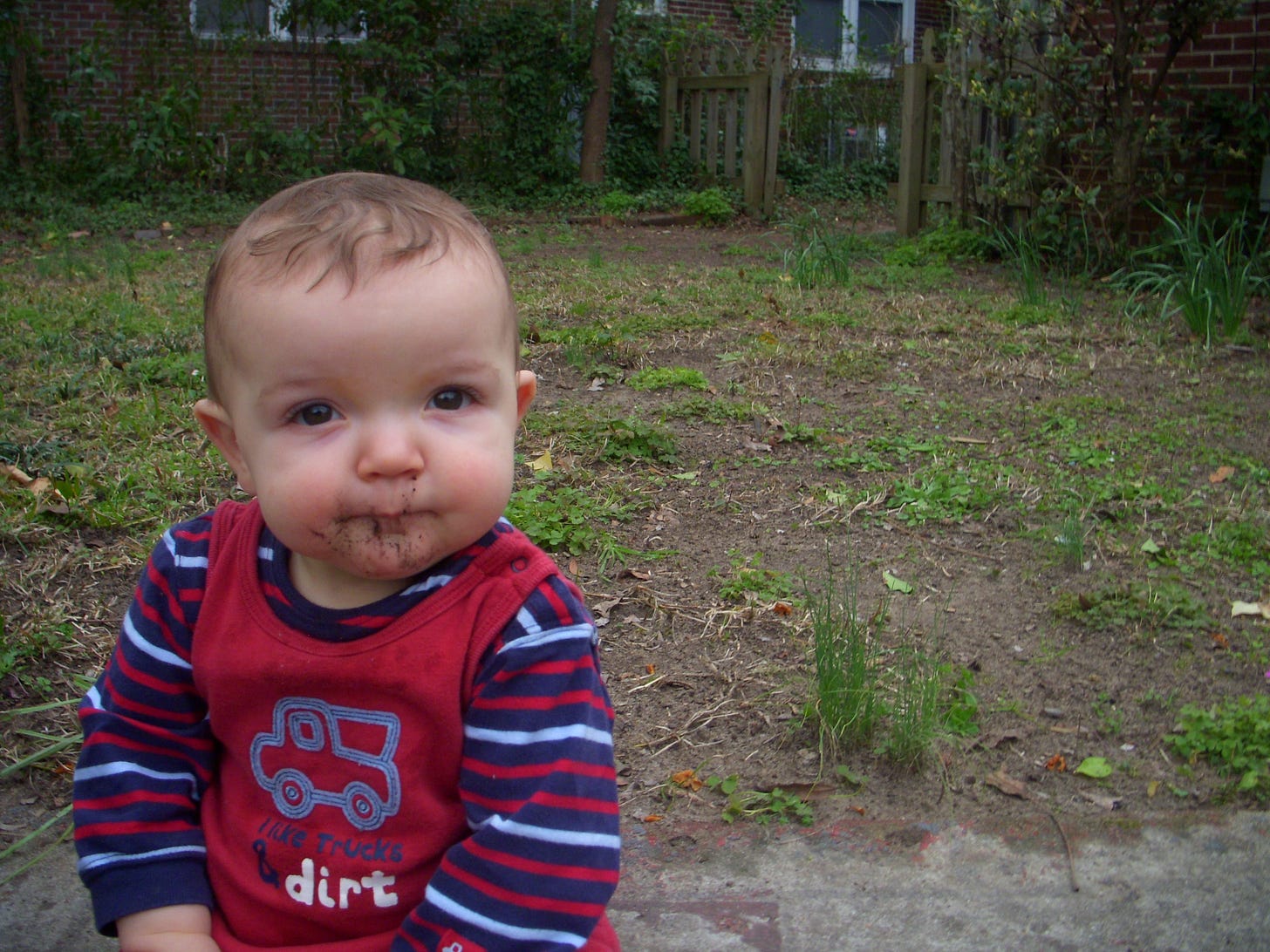
“more money” is a relative term


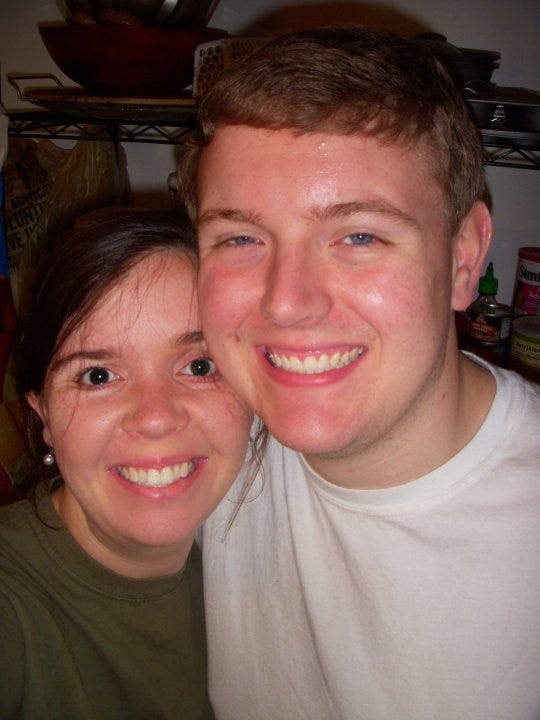
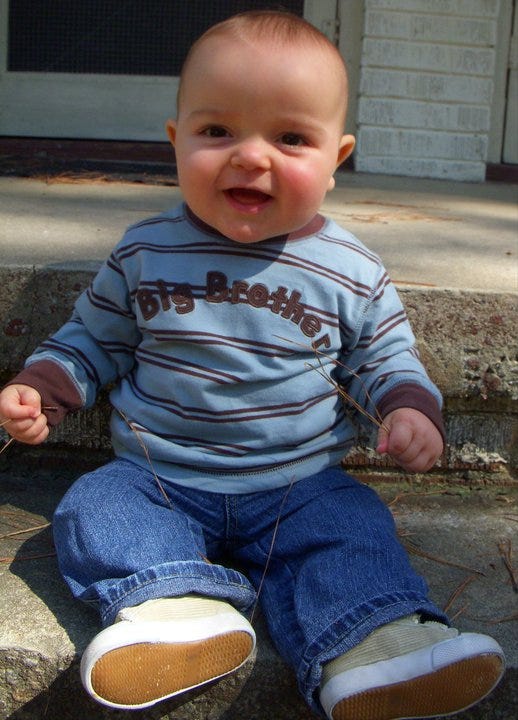
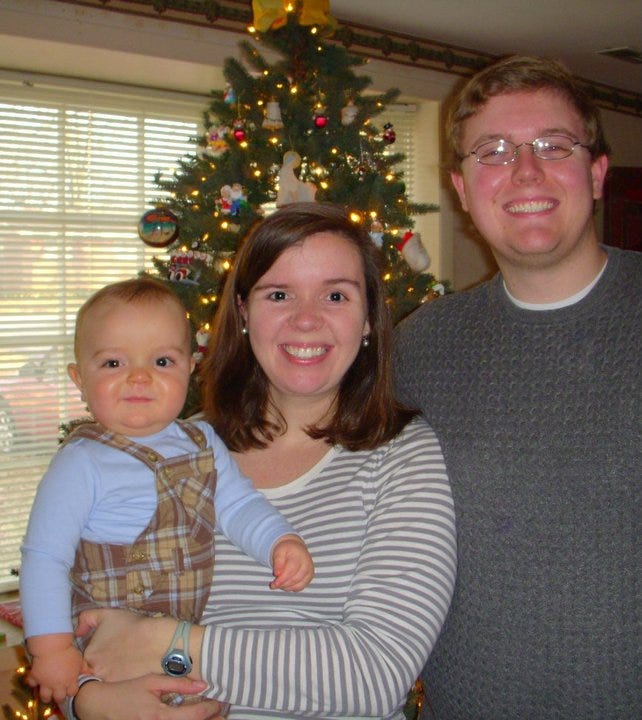
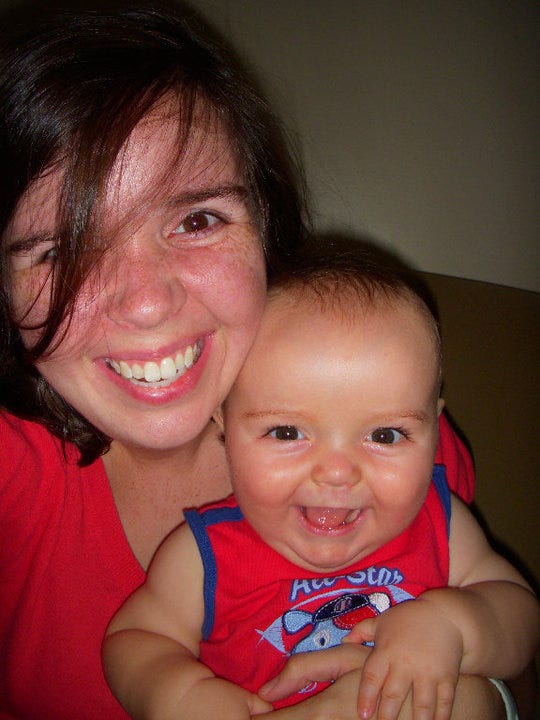
Hoo, how we learn. I have been using our local food pantry, and even as a relatively unashamed person it was so humbling to walk thru it. My narratives have also changed, too, or I don’t know that I could have started doing it. Thanks for sharing your story.